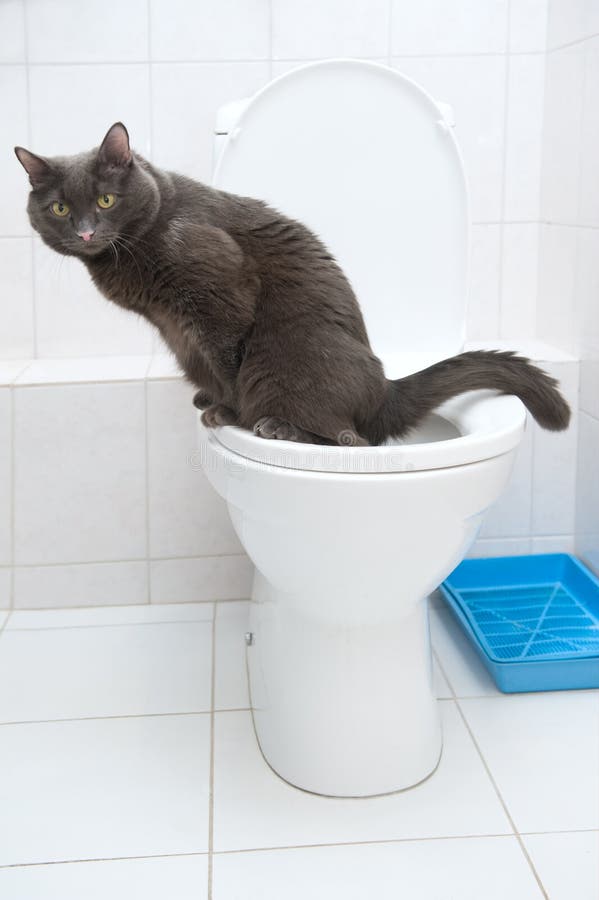Just how do you really feel on the subject of Can You Flush Cat Poo or Litter Down the Toilet??

Intro
As pet cat owners, it's important to be mindful of exactly how we deal with our feline buddies' waste. While it might appear hassle-free to flush feline poop down the bathroom, this technique can have destructive effects for both the environment and human health and wellness.
Ecological Impact
Flushing cat poop introduces hazardous pathogens and bloodsuckers into the water, positioning a substantial risk to marine ecosystems. These impurities can adversely impact marine life and concession water high quality.
Health Risks
In addition to environmental worries, purging cat waste can likewise position health threats to humans. Pet cat feces may have Toxoplasma gondii, a bloodsucker that can cause toxoplasmosis-- a possibly extreme illness, particularly for expecting women and individuals with weakened body immune systems.
Alternatives to Flushing
Fortunately, there are safer and more responsible methods to take care of feline poop. Take into consideration the complying with alternatives:
1. Scoop and Dispose in Trash
The most usual technique of dealing with cat poop is to scoop it into a biodegradable bag and throw it in the trash. Make certain to use a committed litter scoop and dispose of the waste without delay.
2. Use Biodegradable Litter
Opt for eco-friendly feline litter made from products such as corn or wheat. These litters are eco-friendly and can be securely taken care of in the garbage.
3. Bury in the Yard
If you have a lawn, think about hiding cat waste in a designated area far from veggie gardens and water resources. Make sure to dig deep enough to stop contamination of groundwater.
4. Install a Pet Waste Disposal System
Invest in an animal waste disposal system particularly created for feline waste. These systems make use of enzymes to break down the waste, decreasing odor and ecological influence.
Verdict
Responsible animal ownership prolongs past providing food and sanctuary-- it also involves appropriate waste monitoring. By refraining from flushing cat poop down the bathroom and selecting alternate disposal techniques, we can decrease our environmental footprint and safeguard human health and wellness.
Why Can’t I Flush Cat Poop?
It Spreads a Parasite
Cats are frequently infected with a parasite called toxoplasma gondii. The parasite causes an infection called toxoplasmosis. It is usually harmless to cats. The parasite only uses cat poop as a host for its eggs. Otherwise, the cat’s immune system usually keeps the infection at low enough levels to maintain its own health. But it does not stop the develop of eggs. These eggs are tiny and surprisingly tough. They may survive for a year before they begin to grow. But that’s the problem.
Our wastewater system is not designed to deal with toxoplasmosis eggs. Instead, most eggs will flush from your toilet into sewers and wastewater management plants. After the sewage is treated for many other harmful things in it, it is typically released into local rivers, lakes, or oceans. Here, the toxoplasmosis eggs can find new hosts, including starfish, crabs, otters, and many other wildlife. For many, this is a significant risk to their health. Toxoplasmosis can also end up infecting water sources that are important for agriculture, which means our deer, pigs, and sheep can get infected too.
Is There Risk to Humans?
There can be a risk to human life from flushing cat poop down the toilet. If you do so, the parasites from your cat’s poop can end up in shellfish, game animals, or livestock. If this meat is then served raw or undercooked, the people who eat it can get sick.
In fact, according to the CDC, 40 million people in the United States are infected with toxoplasma gondii. They get it from exposure to infected seafood, or from some kind of cat poop contamination, like drinking from a stream that is contaminated or touching anything that has come into contact with cat poop. That includes just cleaning a cat litter box.
Most people who get infected with these parasites will not develop any symptoms. However, for pregnant women or for those with compromised immune systems, the parasite can cause severe health problems.
How to Handle Cat Poop
The best way to handle cat poop is actually to clean the box more often. The eggs that the parasite sheds will not become active until one to five days after the cat poops. That means that if you clean daily, you’re much less likely to come into direct contact with infectious eggs.
That said, always dispose of cat poop in the garbage and not down the toilet. Wash your hands before and after you clean the litter box, and bring the bag of poop right outside to your garbage bins.
https://trenchlesssolutionsusa.com/why-cant-i-flush-cat-poop/

I stumbled upon that blog posting about Don’t flush cat feces down the toilet while doing a search on the web. Are you aware of another person who is truly interested in the topic? Be sure promote it. Thank-you for your time spent reading it.
Visit Our Site